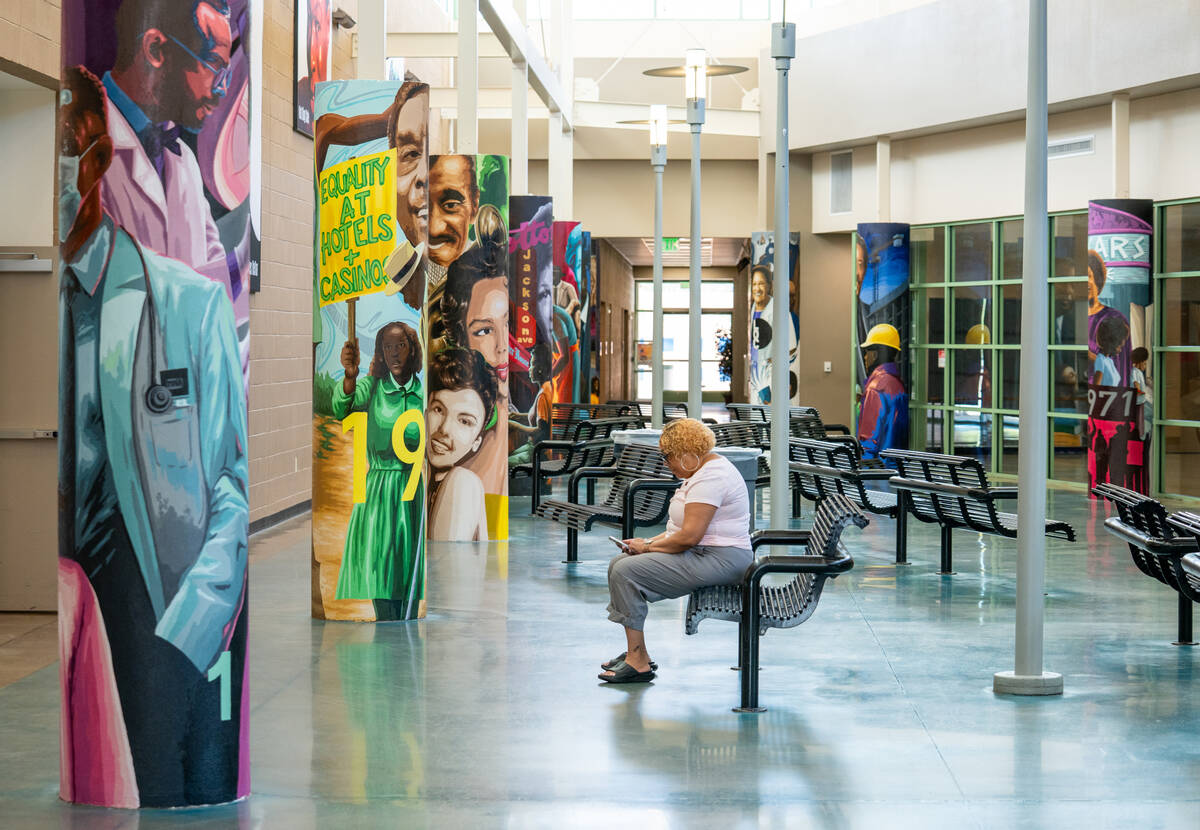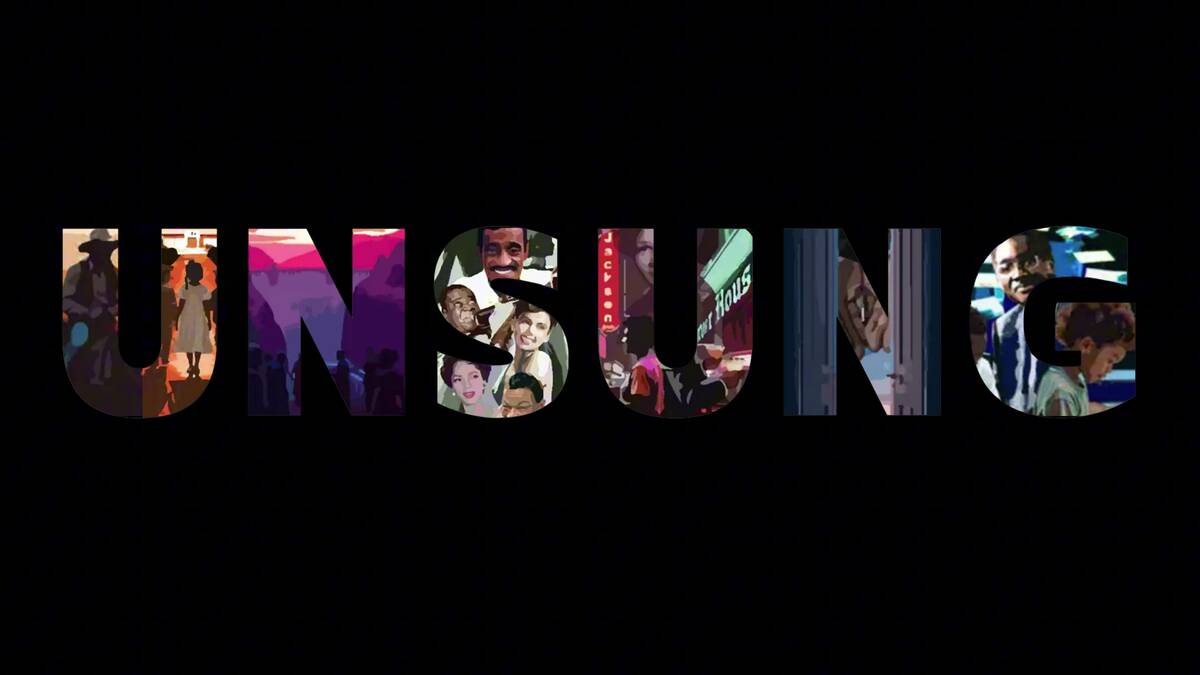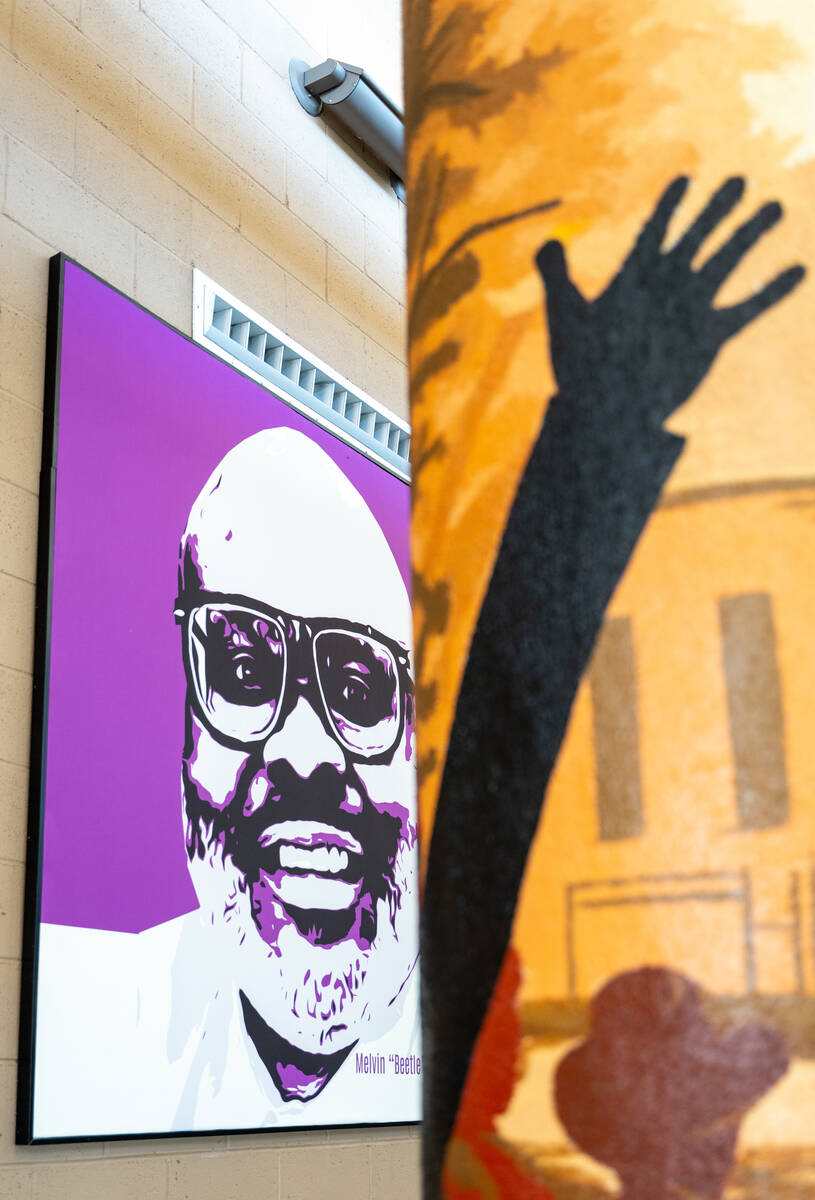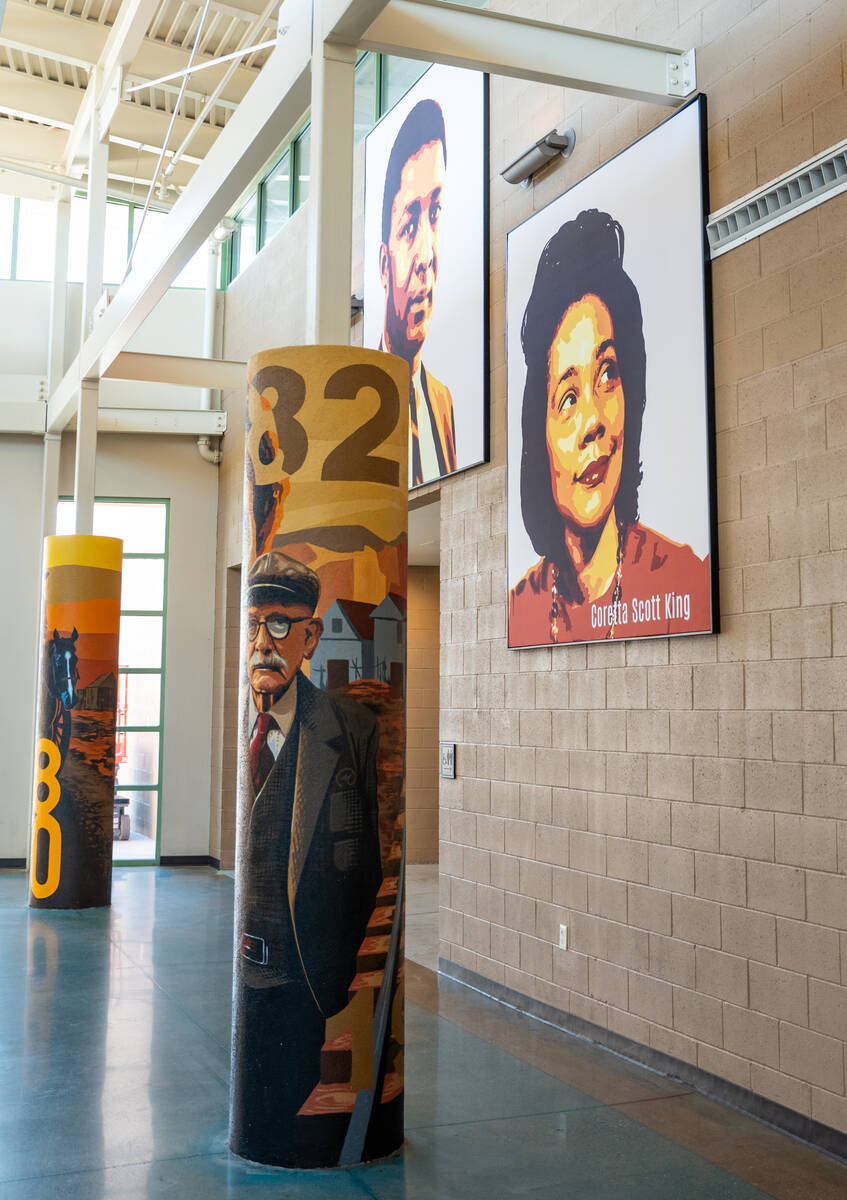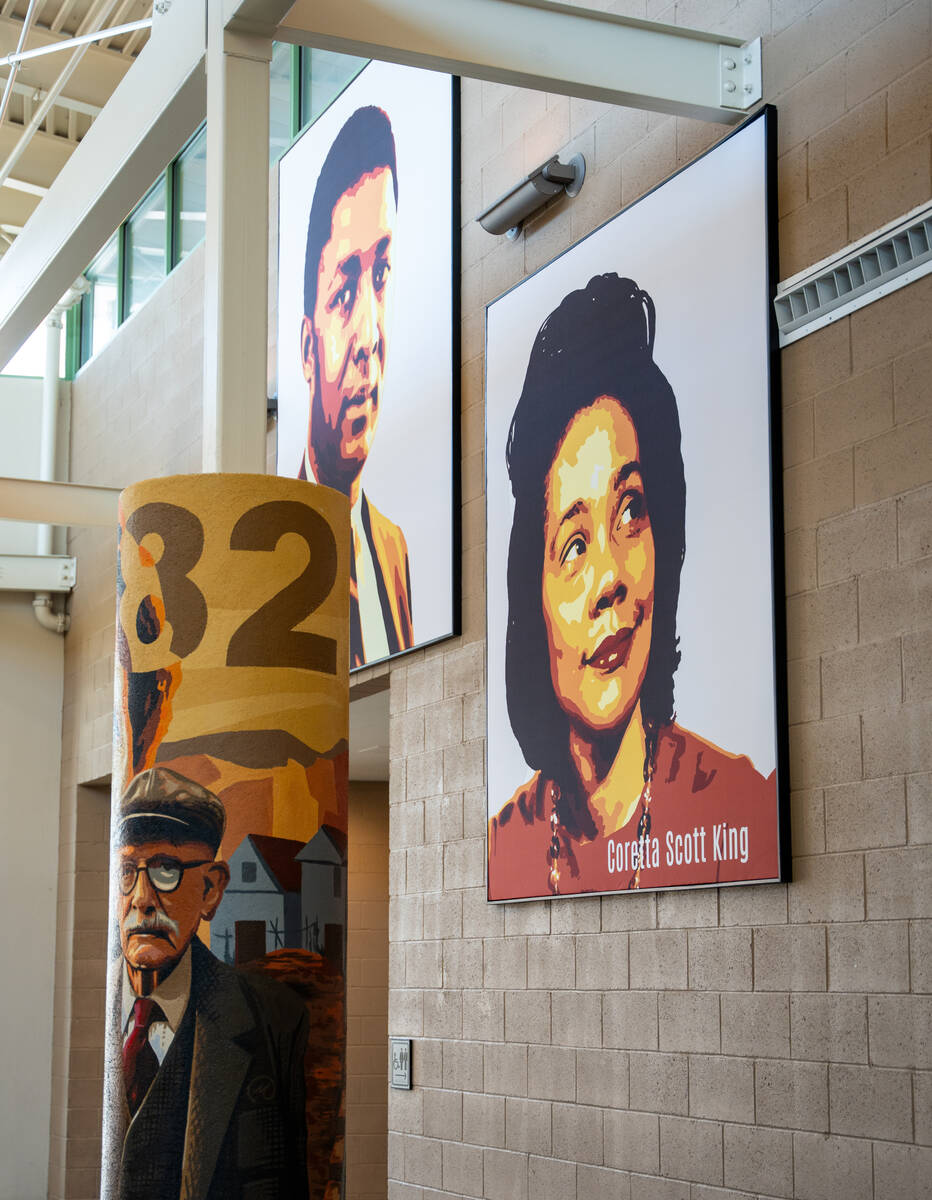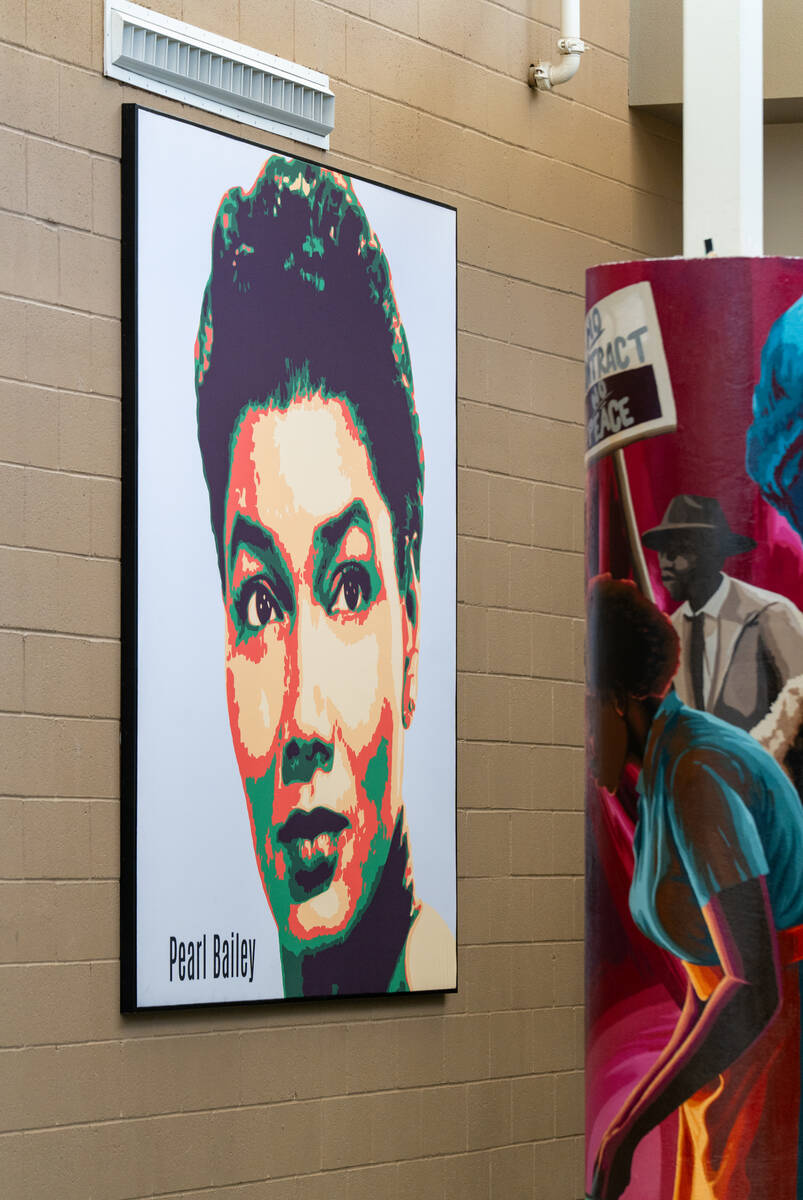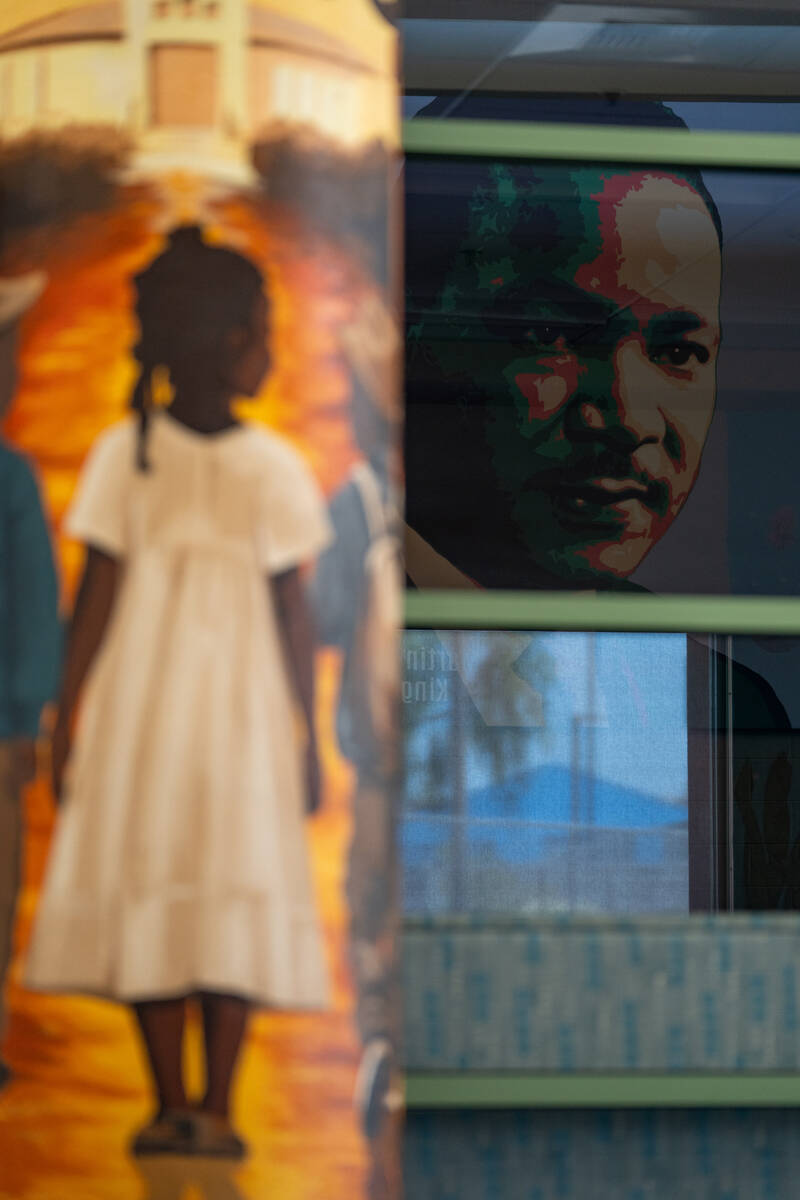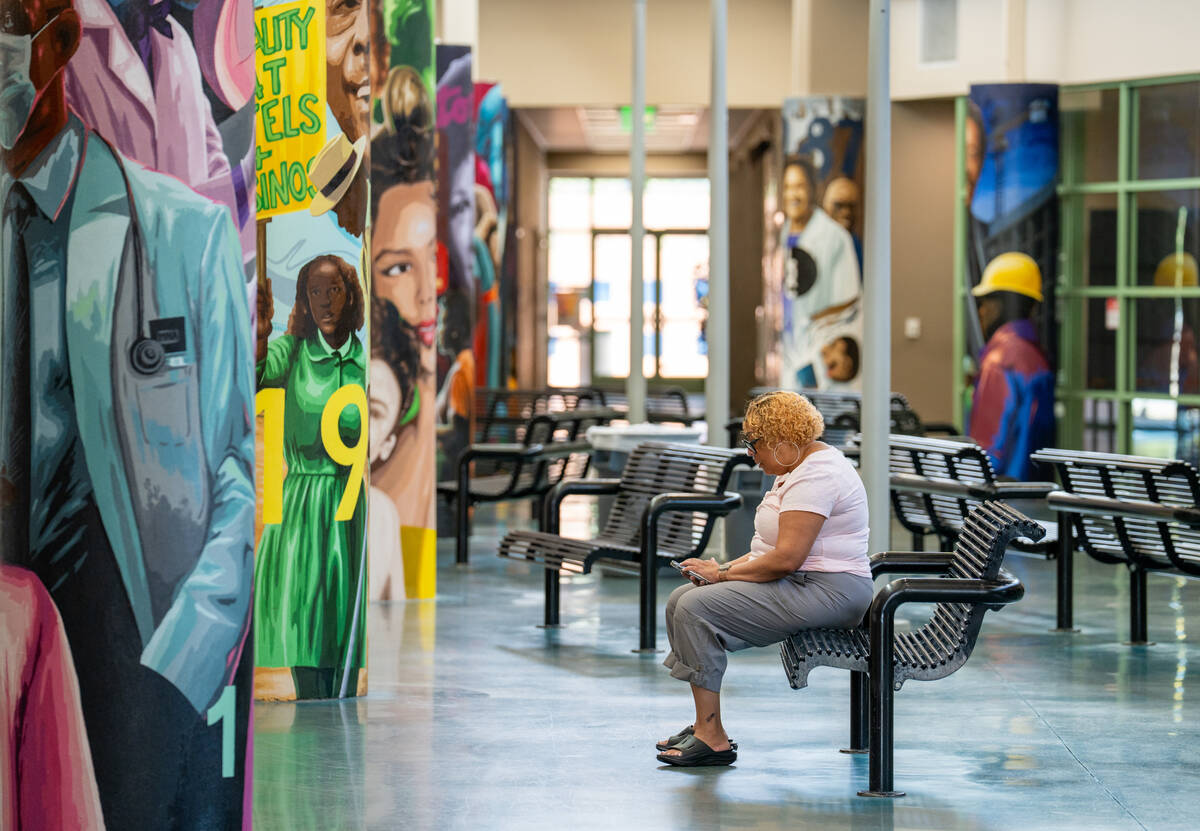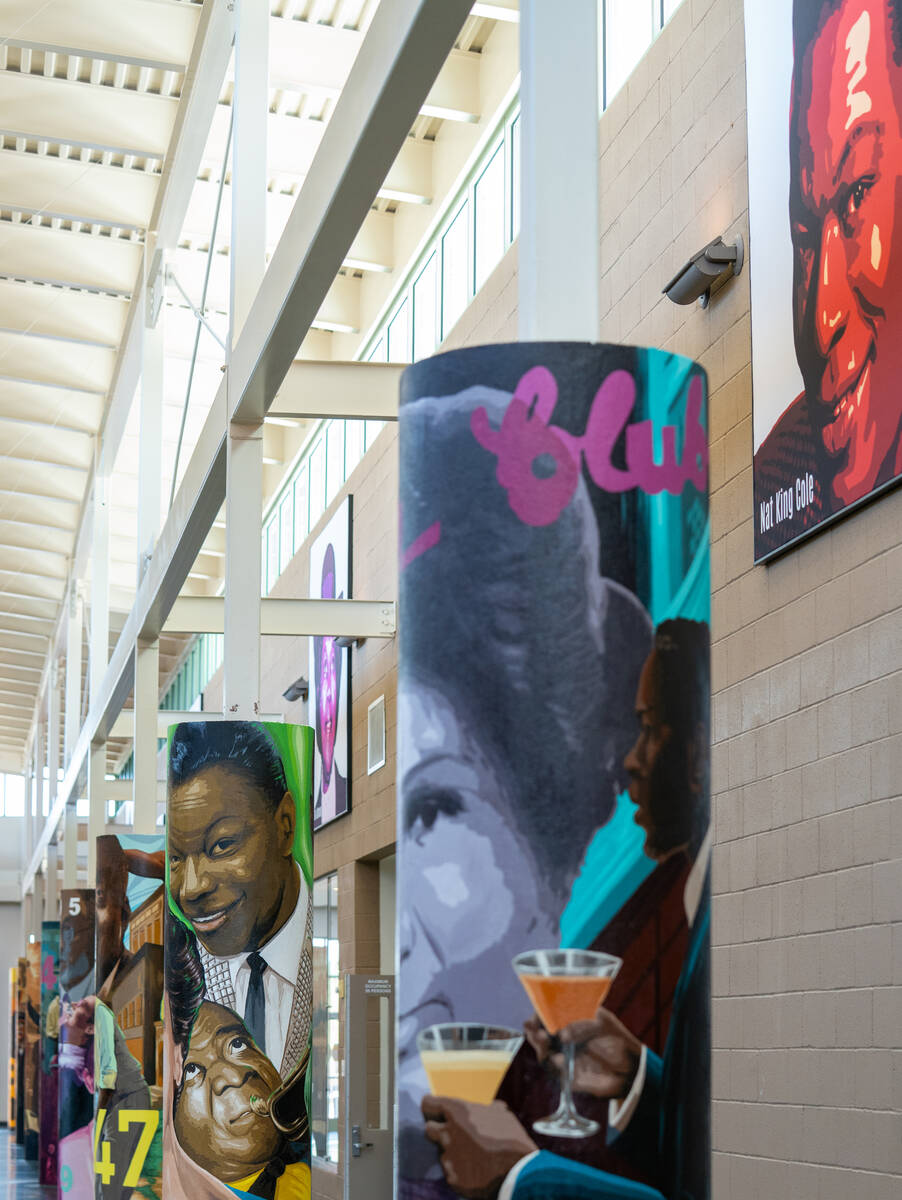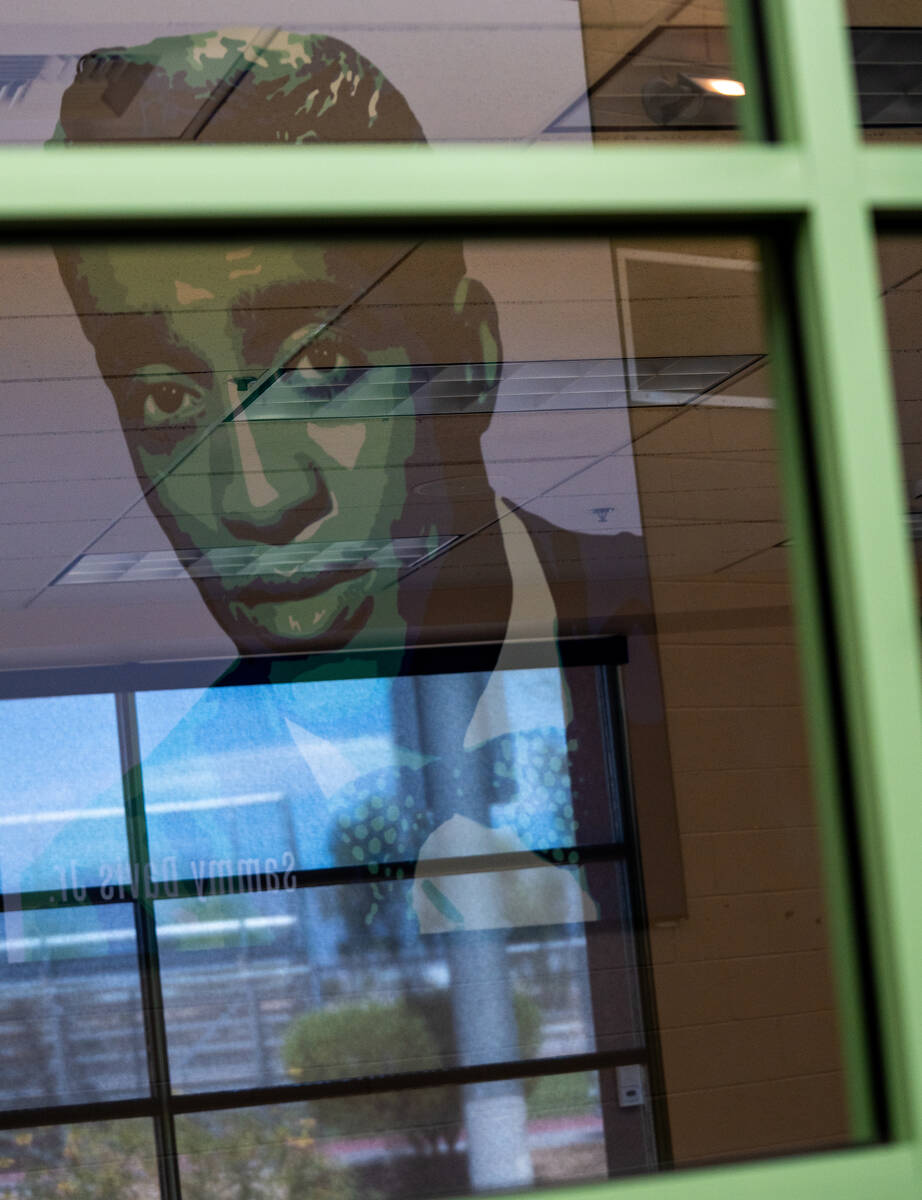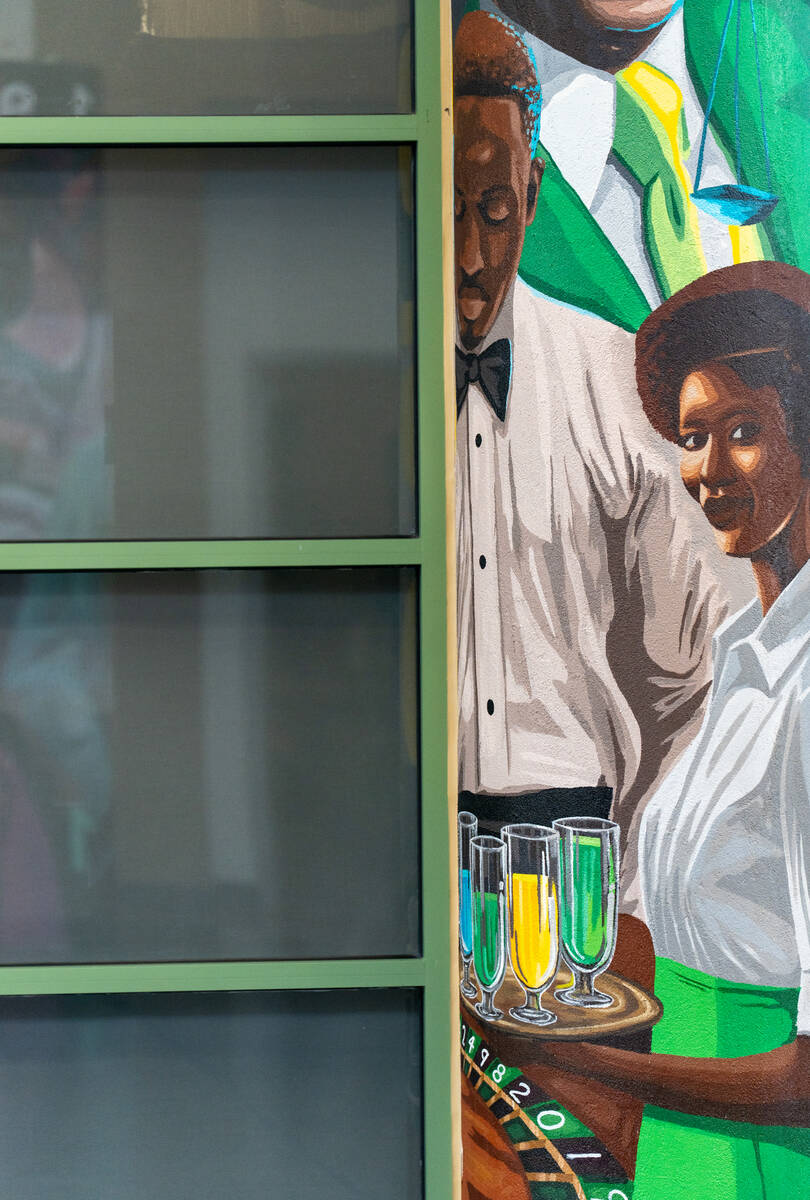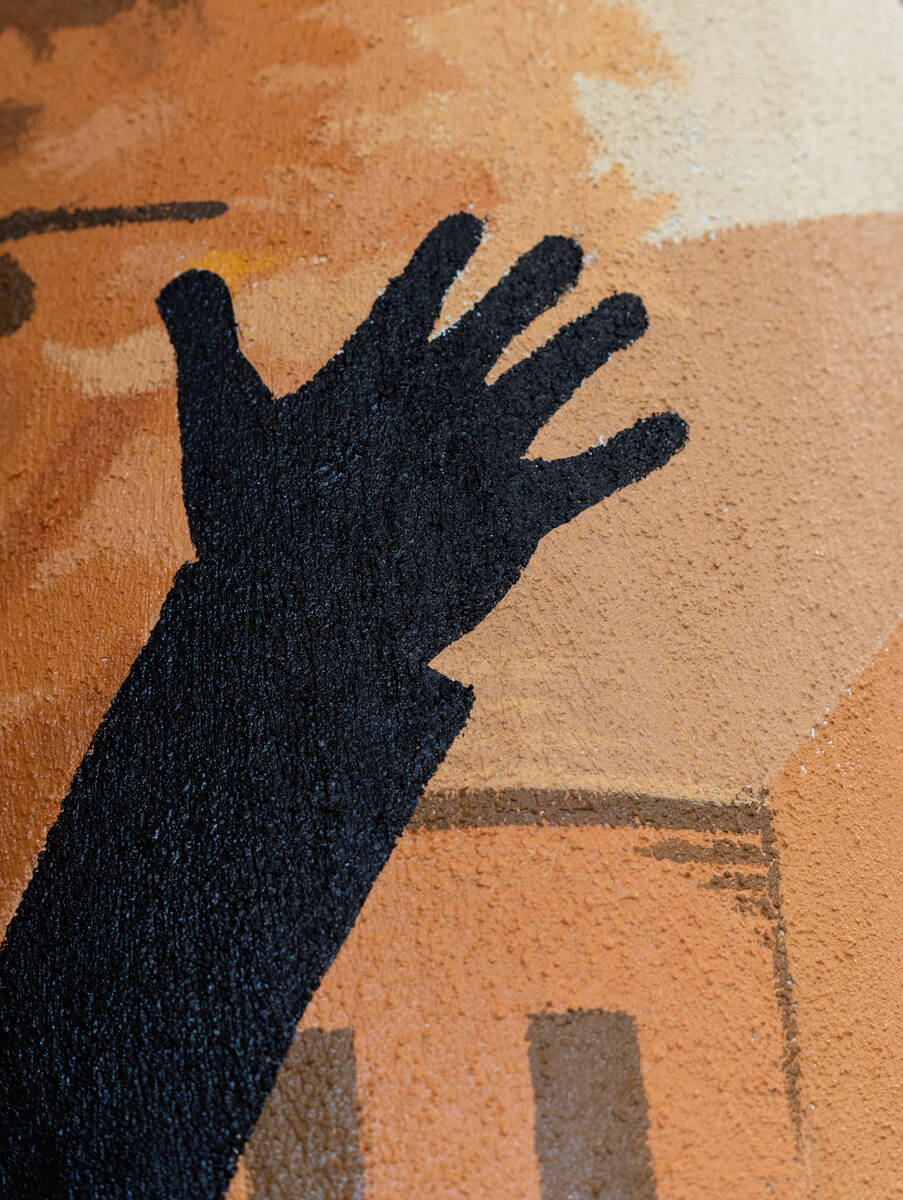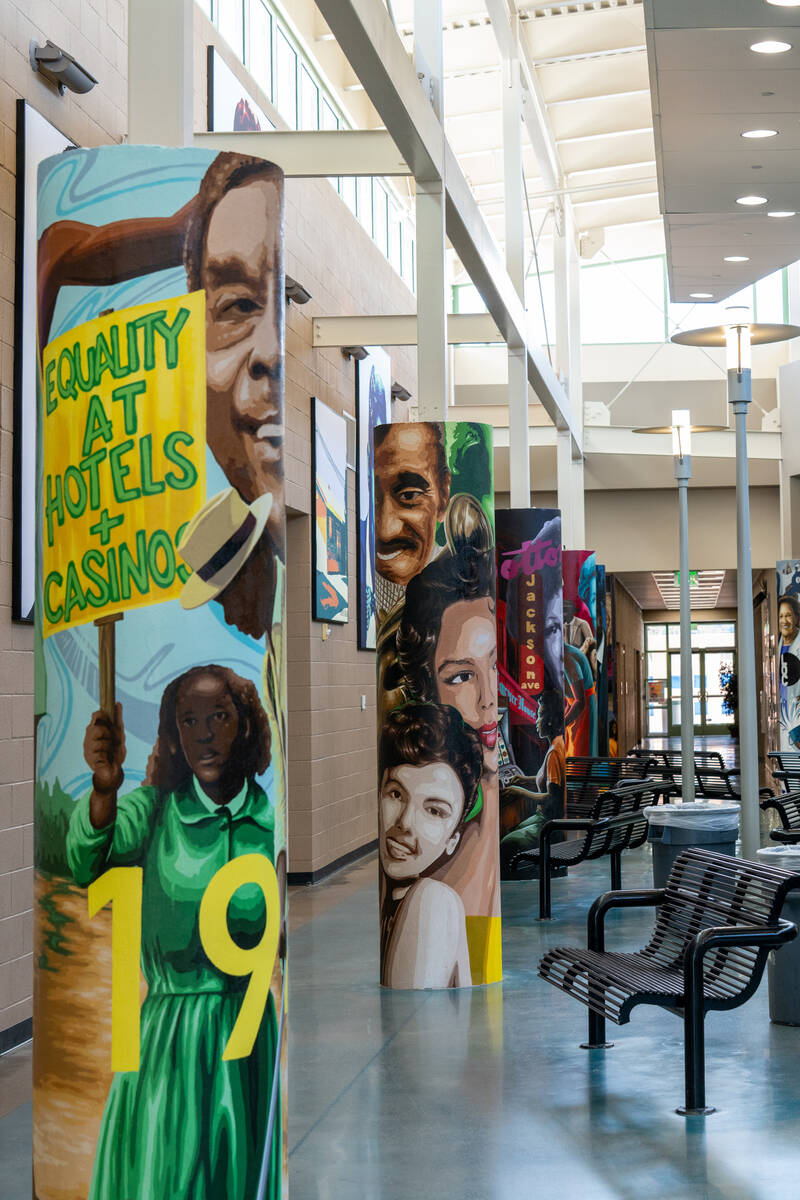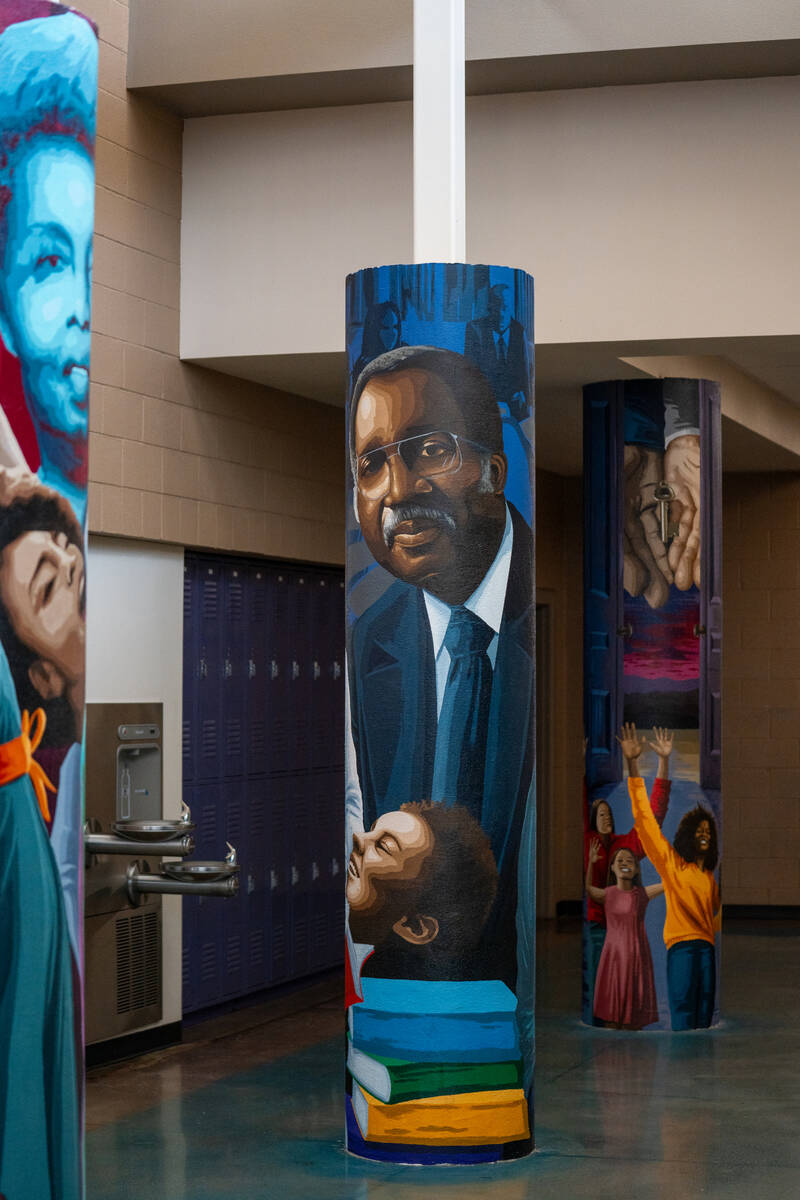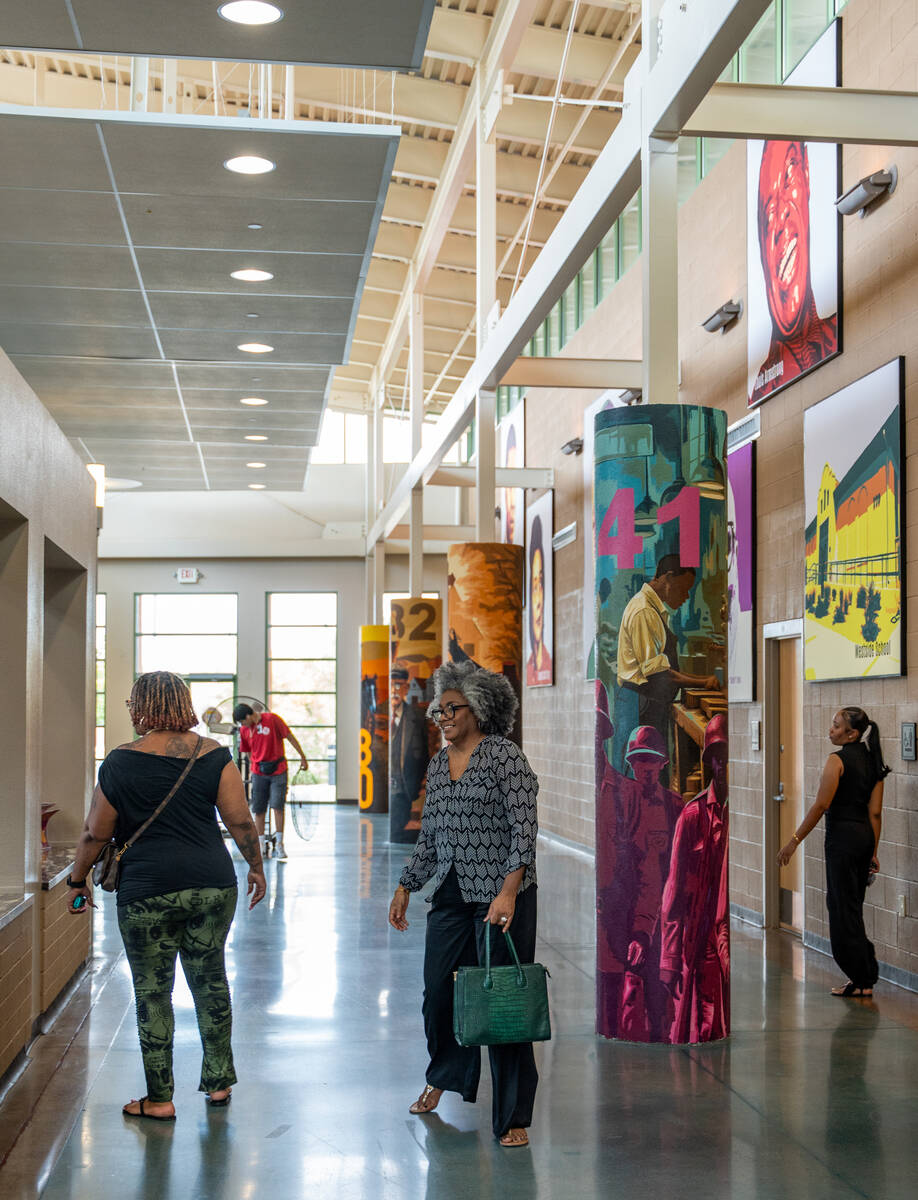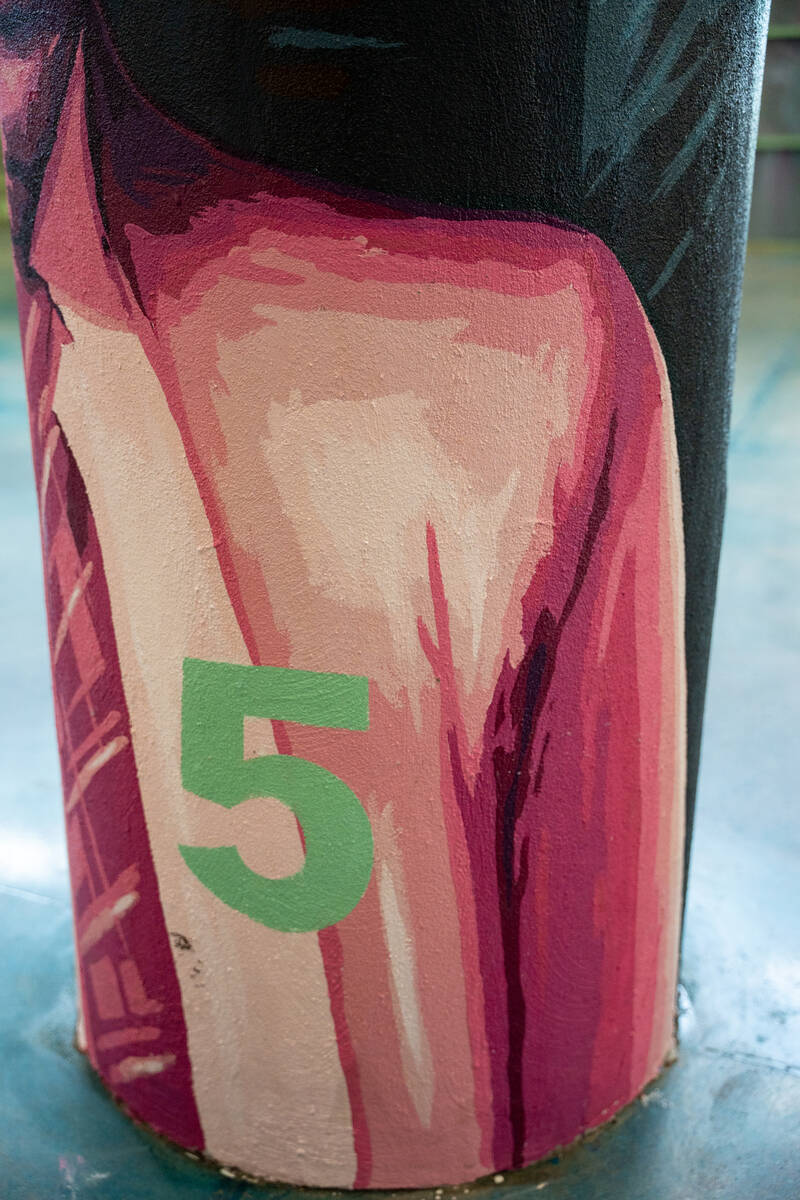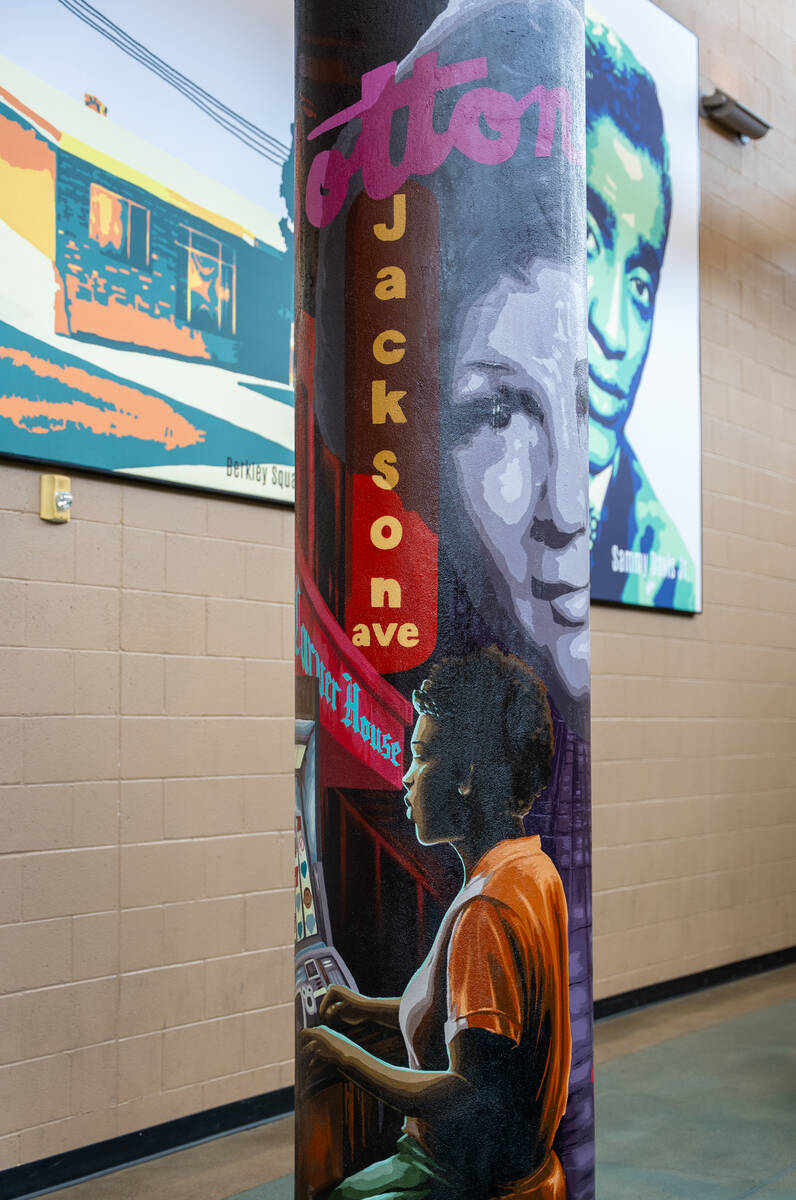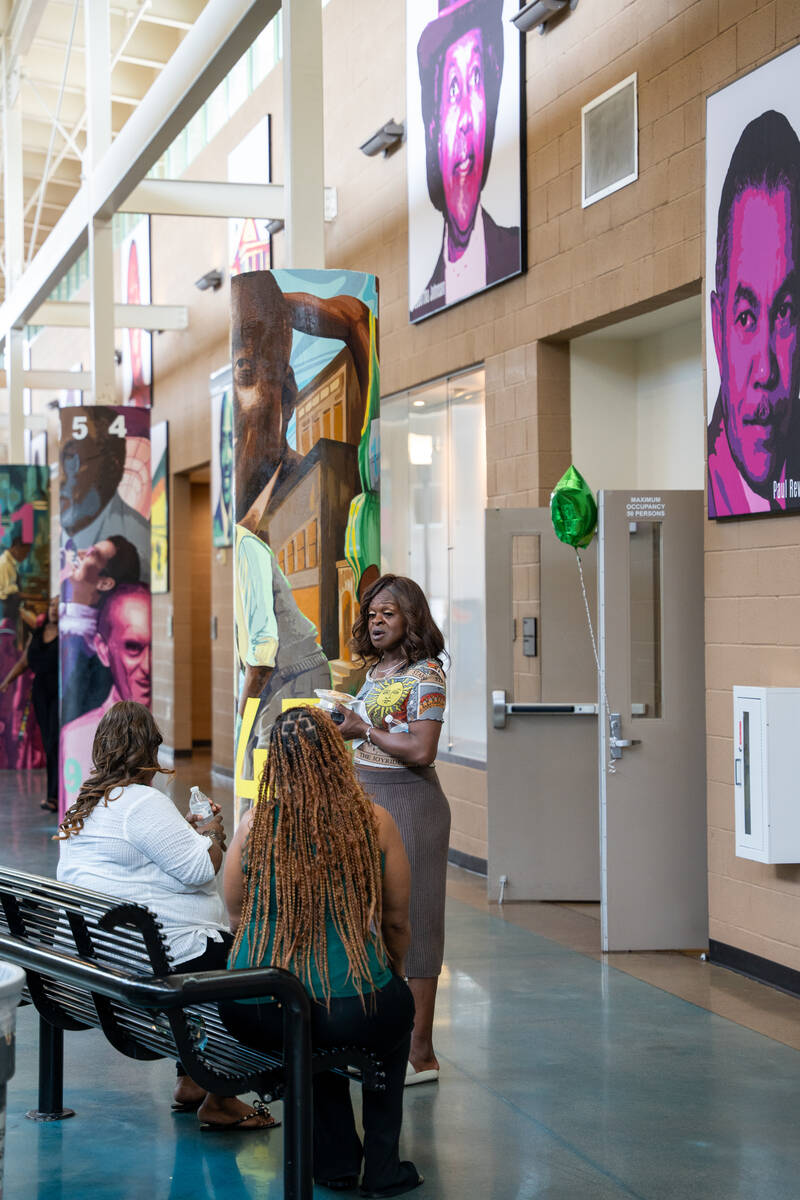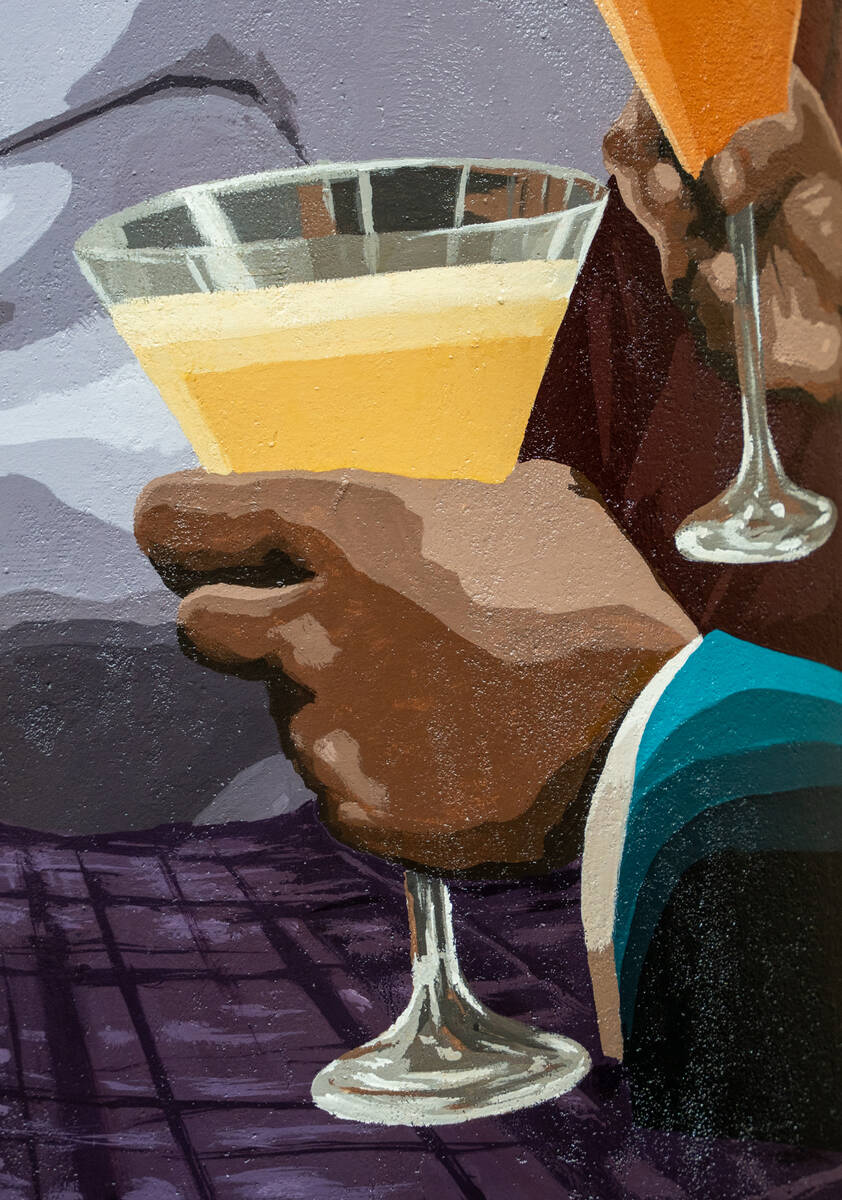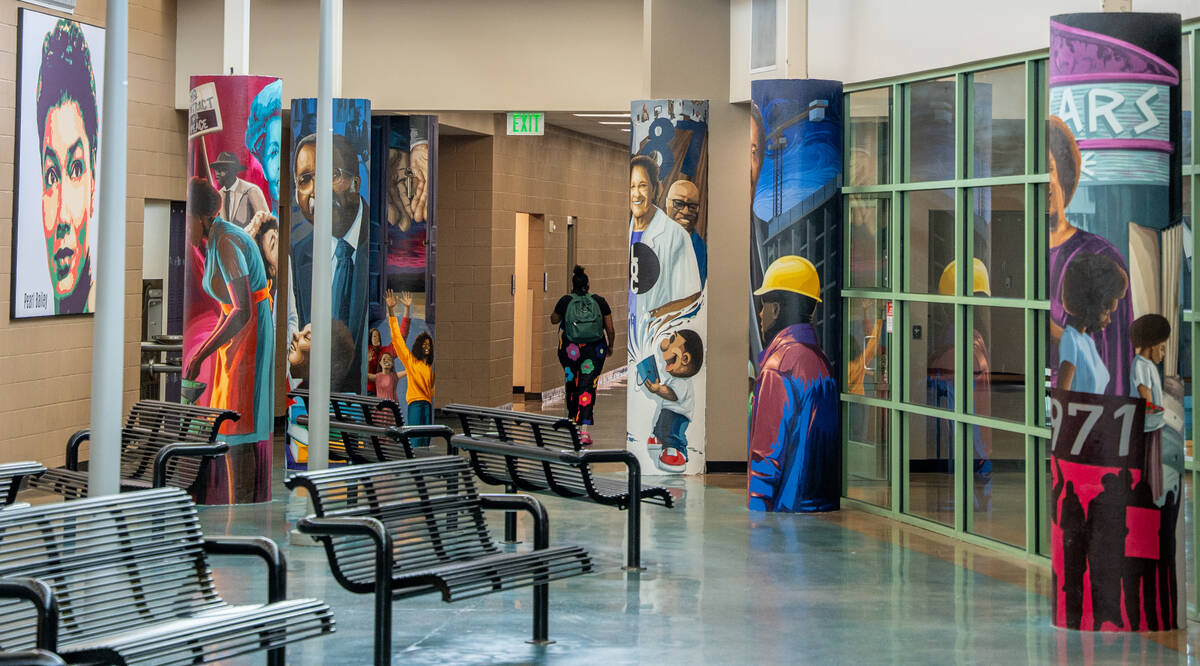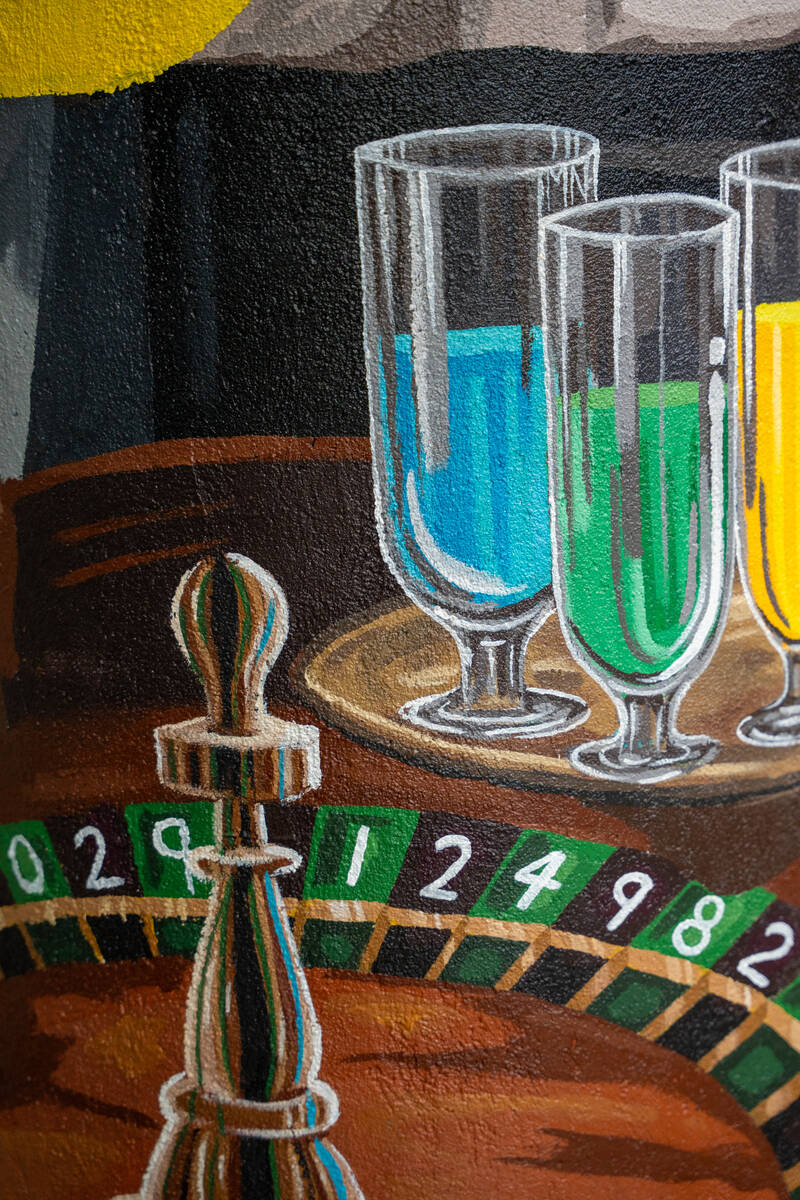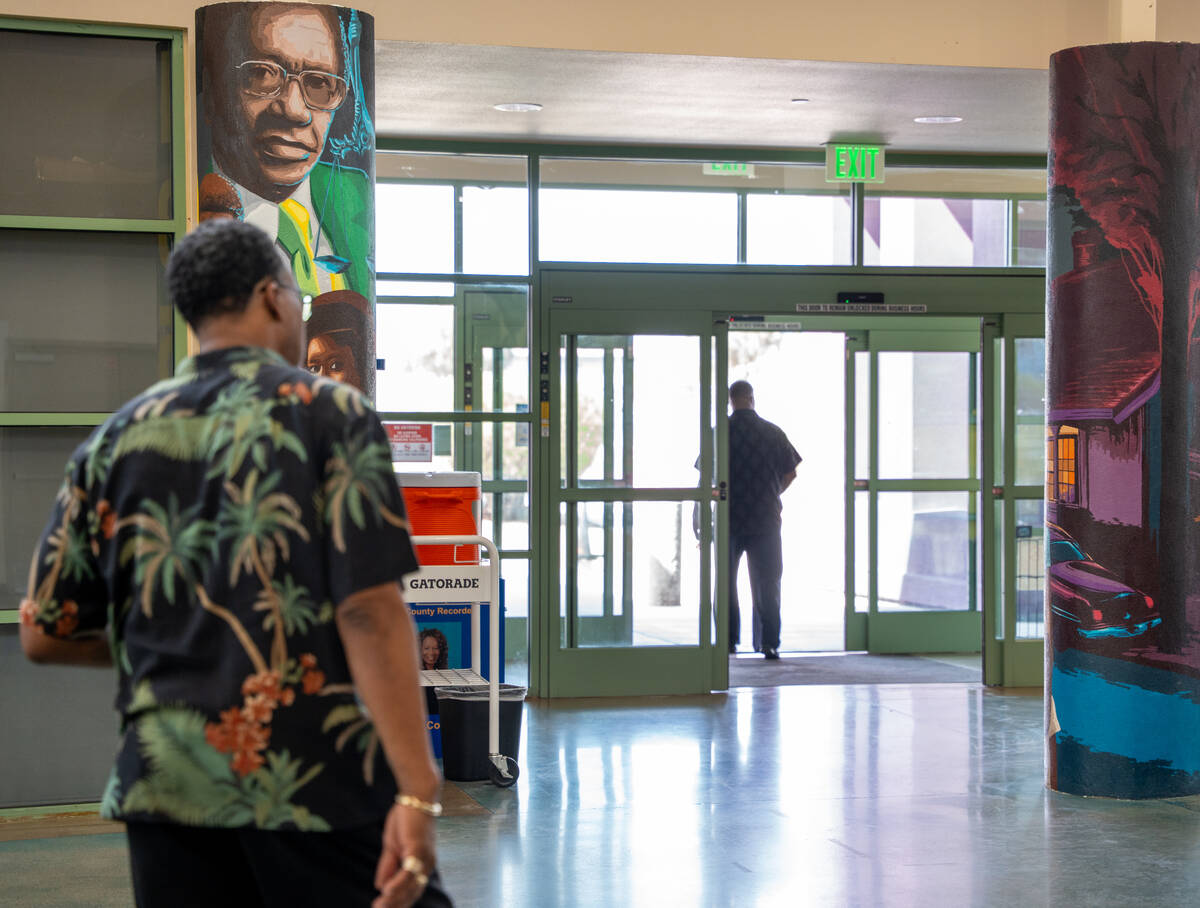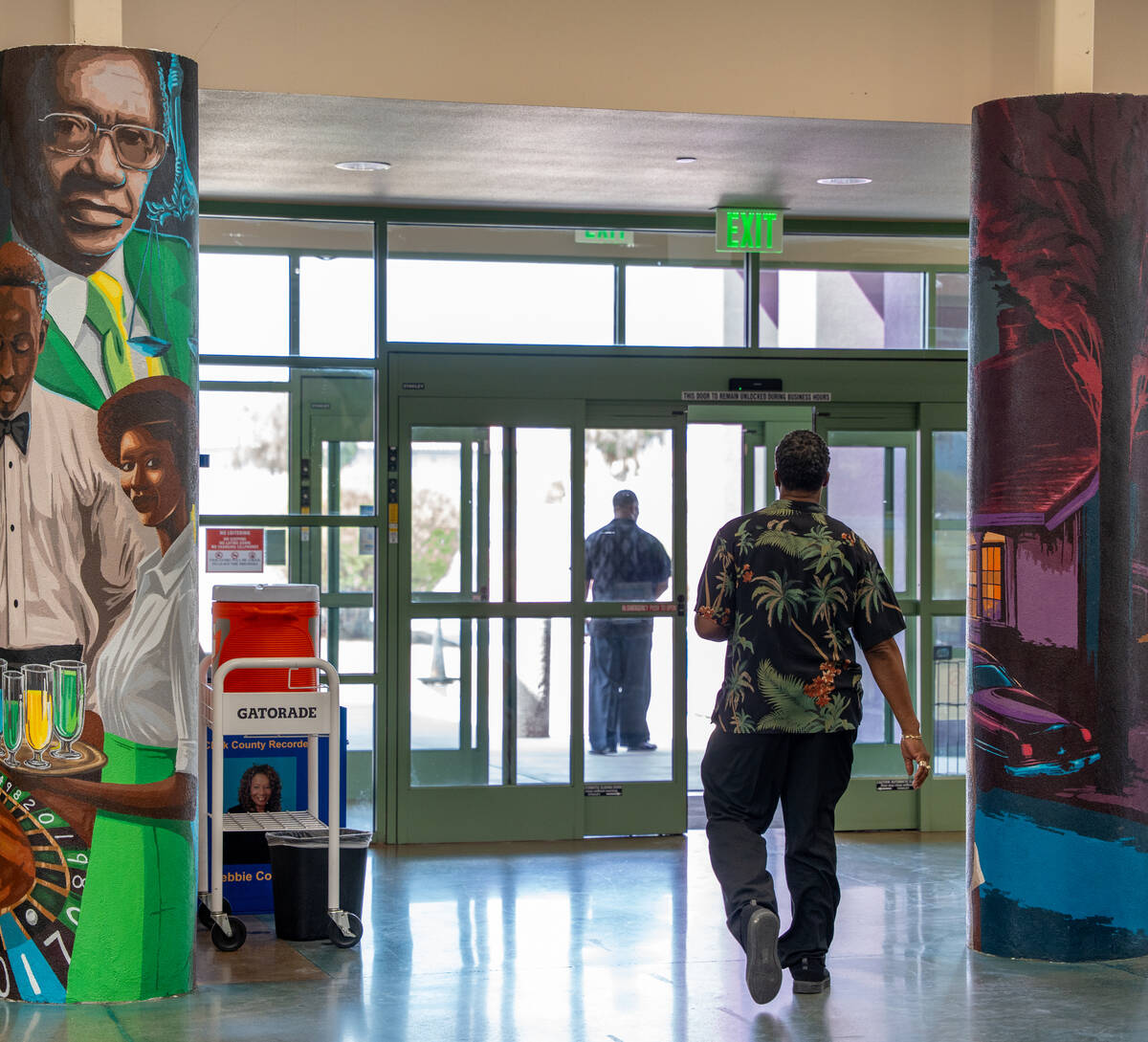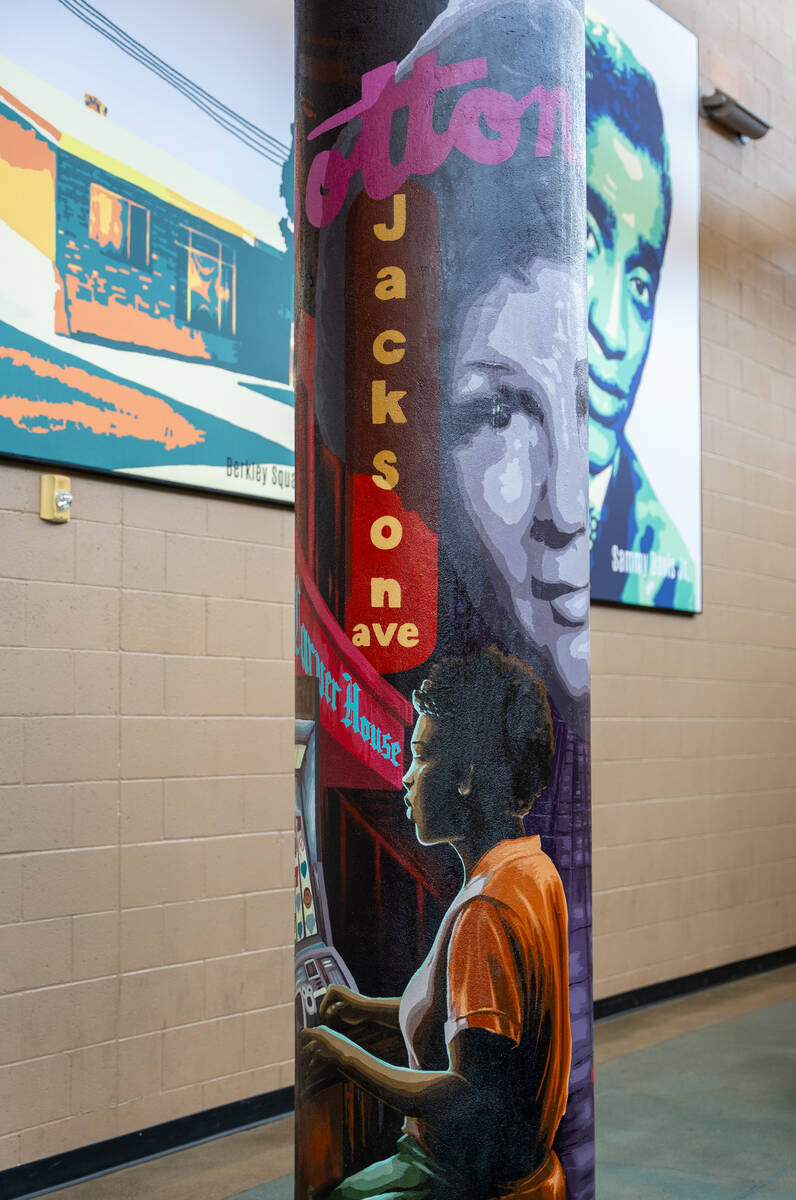‘Unsung’ doc tells Historic Westside history through art project
In 1870, John Howell was one of eight people listed in a census for the Las Vegas area. He was an early pioneer, recognized as the first Black landowner in what would become Clark County. In 1923, Helen J. Stewart donated land for the Historic Westside School, which remained open until 1967. By 1942, the Black population in Las Vegas was 4,000. Today, it’s more than 300,000 across Southern Nevada.
Through the years, like many historic Black neighborhoods, the Westside has seen a lot of joy, challenges, celebrations and strife. Efforts are underway to revitalize the area, aiming to restore the community to what it once was, when spots like Jackson Street were “the place to be” in town.
But to truly revitalize, not gentrify, history plays an essential role.
Preserving the history of the Westside is a lifelong mission of Gwendolyn Walker, the founder of the Walker African American Museum and Research Center, as well as her husband, Muhammad Abdullah, a former journalist of the Las Vegas Sentinel Voice. With the support of the county and local filmmaker Zachary Fried, they hope to continue that mission with the short documentary, “Unsung.”
The 16-minute doc follows the “Unsung Pillars of the Westside” community art project, which debuted in May at the Pearson Community Center, as well as other pieces of the Westside’s history that often go untold.
“It was very prideful to see such a well put together documentary on telling our history, telling our stories, and being very factual, talking to everyday people, people that are not always in the news, you know, all the popular pioneers, but just everyday people who have so many stories to tell,” said Walker, co-director of the film.
Stan Armstrong is memorialized in the film. The filmmaker and UNLV professor died in 2022, after a life dedicated to documenting history “not represented in the history books,” his sister told the RJ. Melvin “Beetle” Ennis, before he died, worked to keep the area’s children out of trouble and on the right path. The film is also in memory of Edna Stovall and Charlene Smith.
The documentary highlights other legacies and the greatness of African Americans who have contributed to modern-day Las Vegas.
At Pearson, the 21 pillars project was created by artist Mike Norice, with a timeline courtesy of Claytee White, a local historian. Each pillar represents a moment in the Westside, from Howell’s arrival to our city’s bright future in diversity.
Pearson “is definitely a staple in the community. By staple, I would say it is one of the most important recreation centers in the Westside, if not in Clark County,” Fried said. “These recreation centers are home.”
He added that the centers act as resource centers and multigenerational gathering places.
Fried, 23, attended Las Vegas Academy and the College of Southern Nevada. He said he learned a lot about the Westside through the filming process.
“I also had a lot of epiphanies of not just realizing how much history I didn’t know, but then starting to think about why I didn’t know it, and what systemic problems we have when it comes to discrimination, when it comes to education,” he said. “So for me, seeing the mural being done now and the documentary being done, it’s been a stress reliever. It’s been very beautiful, because a year ago, I just knew that if this documentary wasn’t done well, it would just be another missed opportunity in a community that is so under-noticed and sometimes under-exposed with money, advertising, media resources.”
Telling truthful histories, they all said, is more important than ever. Last week, President Donald Trump called the Smithsonian Institution “woke,” seeking to expand his administration’s authority over the telling of American history at the museum. He later posted on X the museum is too negative and discusses “how bad Slavery (sic) was.”
“By (the Walker museum) being independent, no one can come in and tell us what we can say, what we can cover and change our history,” Walker said. “That’s what we’re all about, is telling the true history, nothing covered up, nothing hidden. Whether it hurts, and there’s a lot of it that hurts … we really strive and intend on keep telling our history.”
Abdullah added, “I think it’s a great disservice to our humanity, as human beings, for us to try to cover over the truth of the history of our country and our nation. … Keep our contributions to humanity as a whole, keep that at the forefront.”
“Unsung” will be screened for free at the West Las Vegas Library at 7 p.m. Sept. 4, followed by a Q&A. Free tickets can be reserved at nvartscouncil.org/events.
Contact Kristen DeSilva at kdesilva@reviewjournal.com. Follow @kristendesilva on X.

